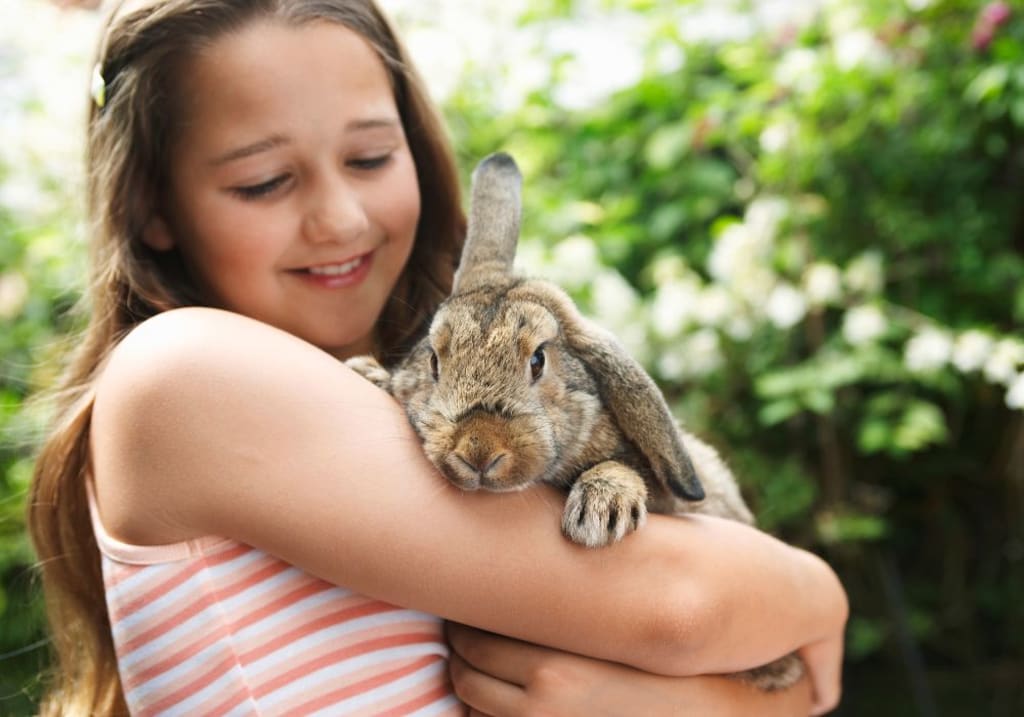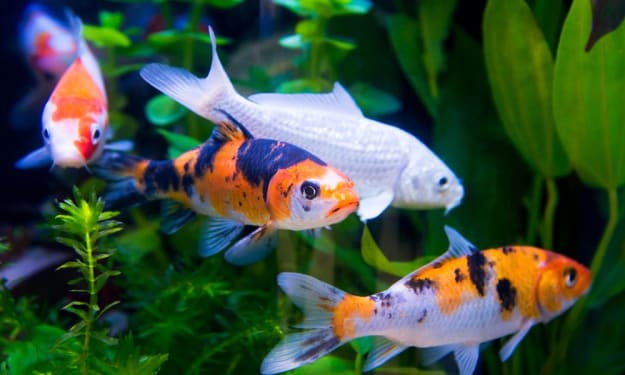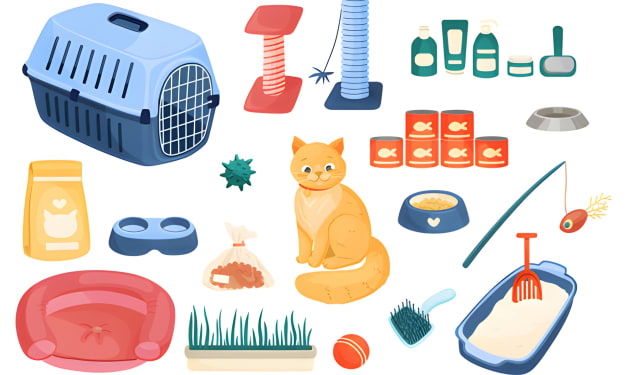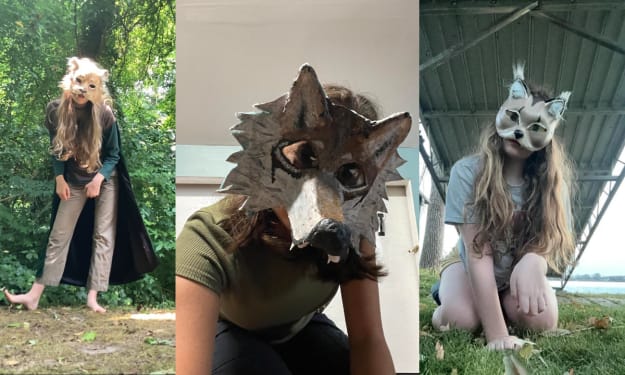Understanding Rabbit Behaviour
What You Need to Know Before Adopting a Pet Rabbit

Introduction to Rabbits: Types, Personality, and Care Requirements
Adopting a pet rabbit can be an exciting experience for any family. But it is important to understand rabbit behaviour to ensure that your family is ready for the commitment. Whether you are looking for a small or large rabbit, each breed has its own unique personality and care requirements. From cuddly Netherland Dwarfs to sassy French Lops, there are so many options when it comes to picking the perfect bunny for your home.
Types of Rabbits
There are over forty recognized breeds of domestic rabbits, making it easy to find an animal that matches your lifestyle and preferences. The most popular breeds include the Netherland Dwarf, English Spot, French Lop, and Holland Lop. All of these breeds come in both pedigreed and mixed varieties. Smaller rabbits such as the Dutch require less space than larger breeds like the French Lop or Flemish Giant, which means they may be better suited for apartment living.
Personality
Rabbits have distinct personalities that can make them a challenge or a joy to live with. Some bunnies are shy and timid while others may be more outgoing and friendly towards people. It is important to spend time observing your potential pet before you make a decision on which one is right for your family. Take note of how they interact with other animals such as cats or dogs as well as their reaction when being handled by humans. This will give you an idea of what kind of energy level you can expect from them once they become part of your home.
Care Requirements
In addition to understanding their personality traits, it is also important to consider the basic care requirements of rabbits before bringing one home. Rabbits need plenty of oxygenated fresh air so avoid keeping them in cages all day long – instead let them roam around the house in order to get exercise and explore their environment! They will also need daily access to hay as part of their diet in order stay healthy – timothy hay specifically should make up 80% of their diet since it has essential vitamins and minerals that help keep their digestive system running smoothly. Along with providing plenty of water for drinking purposes, rabbits should also receive supplements like vitamin C drops every couple days in order to prevent health problems from developing over time due to deficiencies in nutrition intake
Conclusion
Adopting a pet rabbit can be very rewarding but it requires a certain level of understanding when it comes to their behaviour and care requirements. By taking into account factors such as breed type, personality traits, and basic needs you can ensure that both you and your new furry friend will enjoy plenty happy years together!
What to Consider Before Adopting a Rabbit
When you are considering adopting a pet rabbit, it is essential to understand rabbit behaviour. Rabbits can make loyal and loving pets, but they have their own unique personalities that require certain care and attention. It's important to understand their needs and temperament before bringing a furry friend into your home. Rabbits need plenty of exercise, mental stimulation, and social interaction. They enjoy exploring their environment so they require an area where they can safely hop around and play. A large cage or enclosure will give your pet enough space to move about, as well as hide when needed.
Rabbits are very clean animals that like to groom themselves frequently, so you’ll need to provide them with chew toys and other activities that help keep them occupied throughout the day. Whenever possible, try to interact with your pet rabbit in its natural habitat before bringing it home. This will help you learn more about its personality and how it responds to different environments. Additionally, rabbits tend to bond well with other small animals such as guinea pigs, hamsters or gerbils - so if you have a companion for your bunny already in mind, get them used to each other beforehand. Another important aspect of owning a rabbit is diet. Rabbits are herbivores and need access to fresh vegetables like carrots or kale on a daily basis alongside their hay-based diet for proper nutrition.
Knowing what type of food should be given is essential for keeping your pet healthy - make sure you find out what kind of diet works best for the breed of rabbit you’re planning on adopting before taking them home! Finally, just like any other pet, rabbits require regular grooming such as brushing/combing their fur and trimming their nails when needed. Make sure you have the necessary tools available beforehand - this will prevent any potential harm coming to your new furry friend! Overall, there is much more involved with raising a pet rabbit than meets the eye – from understanding its behaviour in order to create a safe environment for it at home, all the way through providing proper nutrition for its long-term health - so be prepared and do your research before welcoming a new rabbit into your life!
Common Rabbit Behaviors and How to Handle Them
Rabbit pet ownership is a rewarding experience for many, but to ensure your pet rabbit remains happy and healthy, it's important to understand common rabbit behaviors. Rabbits are complex creatures and if you don't understand the signals they use to convey emotions, messages, and intentions, it can cause problems in the relationship. Here are some of the most common rabbit behaviors and how you can handle them.
Digging
Rabbits are burrowing animals by nature so it's no surprise that digging is a common behavior among pet rabbits. It’s important to provide your rabbit with plenty of safe ways to express this behavior. Create an area with shredded paper or hay for digging or offer toys that allow them to dig without destroying furniture or carpets. If they still try to dig elsewhere, confinement or discouraging words can discourage them from this activity.
Jumping
Rabbits are very energetic animals and jumping is a great way for them to express this energy. This behavior is perfectly normal as long as you have the right environment set up for your pet. Provide plenty of space with plenty of places for rabbits to explore and jump around without ruining furniture or other items. You may also want to consider fence options that will help give your rabbit plenty of room and protection from predators.
Biting
Biting is one of the most common forms of communication among rabbits, so it’s important that you understand why they do it so you can respond appropriately. If a rabbit bites out of fear or aggression, gently move away from them and let them calm down before attempting any further interaction. If they are simply trying to get your attention, offer positive reinforcement such as treats when they don’t bite or gently move away when they do bite.
Chewing
Chewing is another normal behavior for rabbits that need understanding and guidance . Provide plenty of chew toys like cardboard boxes filled with straws or hay cubes that help satisfy their need for chewing without ruining furniture or other household items . Another great way to encourage correct chewing behavior is by providing special snacks like fresh vegetables , herbs , fruits , hay cubes , etc . Circling < div > Circling around humans feet , jumping on furniture , walls , etc . is another common behavior seen in rabbits . This usually implies dominance display which could become dangerous if not handled properly .
To stop this kind of behaviour in its track provide positive reinforcement when your pet does not circle ( treats ) instead reward desired behaviour ( e . g . sitting beside you ) if necessary use spray bottle filled with water as gentle deterrent when circling occurs < h3 >Conclusion < div > Understanding Rabbit Behaviour is key in order to create a healthy relationship between pet owner and their pet rabbit . It's important for owners to recognize signs displaying different behaviours such as digging , biting , jumping , chewing and circling so they can properly respond and handle these behaviours correctly . With the right environment set up with plenty of toys, chewables and ramps providing ample room for exploration along with continual positive reinforcement owners will be able build a solid bond with their pet bunny quickly!
Training Tips for New Pet Rabbit Owners
Having a pet rabbit in the house can be a lot of fun and provide hours of entertainment. But before you adopt a pet rabbit, it's important to understand its behaviour. Knowing how your pet rabbit is likely to react to different situations can help you avoid any potential problems and ensure that both you and your pet rabbit are happy. Here are some useful tips to help you understand the behaviour of your new pet rabbit.
Identify Your Rabbit's Personality
As with any animal, rabbits have unique personalities. Some rabbits may be timid while others may be more outgoing. It's important to take the time to get to know your rabbit and understand its personality so that you can create an environment where it will feel safe and secure. Spend time observing your pet, noting how it reacts in different situations. With a better understanding of your rabbit's personality, you'll be better equipped to deal with potential issues and create a more positive living environment for your pet.
Be Patient With Your Rabbit
Rabbits take time to become comfortable around new people or environments, so patience is key when introducing them into new surroundings. Give them plenty of time to explore their new space and get familiar with their owners. Speak softly and calmly around them, as loud noises or sudden movements can startle them easily.
Establish Routines
Rabbits thrive with consistent routines, and establishing one early on can help them feel more at home. This means providing food at the same time each day, playing with your rabbit regularly, creating a schedule for cleaning out habitats, and having set times for playtime or cuddles. When rabbits feel comfortable in their environment they're more likely to behave well.
Provide Enrichment Opportunities
Rabbits need plenty of stimulating activities throughout the day in order to stay healthy both mentally and physically. Providing toys such as balls, tunnels or chews can help keep them entertained whether they're indoors or outside in an enclosure.
The key takeaway here is that understanding rabbit behaviour before adopting a pet rabbit is essential for creating a safe environment for both yourself and your rabbit. By taking the time to get familiar with its personality traits, providing enrichment opportunities through toys or activities, as well as establishing routines that provide consistency –you’ll be well on your way towards having an obedient bunny who loves its home!
Conclusion: How to Make Your Rabbit Feel at Home
Making your pet rabbit feel at home is an essential part of the process when caring for a new pet. Rabbits are social animals and need plenty of mental stimulation and physical activity to keep them healthy and happy. To ensure your bunny feels safe and secure in their new home, there are a few things you can do to make them comfortable. First, create a safe space that is free from any potential predators or dangers such as other animals or loud noises. This should include a sizable cage with enough room for your rabbit to move around comfortably, as well as plenty of toys and chewables for mental stimulation. Additionally, provide plenty of hay that's changed regularly, as well as fresh vegetables and food pellets for nutrition.
It's also important to give your pet rabbit plenty of opportunities for physical activity outside the cage so they can run around freely in an enclosed area. This can help keep them active, while also providing much needed time away from their cage. Finally, spend quality time with your new pet rabbit on a daily basis by doing activities like playing together or providing them with extra cuddles. It will give them plenty of attention and will help strengthen the bond between you both. By following these simple steps, you'll be able to ensure that your rabbit pet feels safe, secure and comfortable in their new home.
About the Creator
Hasan
Welcome...
In this site of mine you can learn amazing things and many information that you don't know so please subscribe to my site.
Enjoyed the story? Support the Creator.
Subscribe for free to receive all their stories in your feed. You could also pledge your support or give them a one-off tip, letting them know you appreciate their work.






Comments
There are no comments for this story
Be the first to respond and start the conversation.